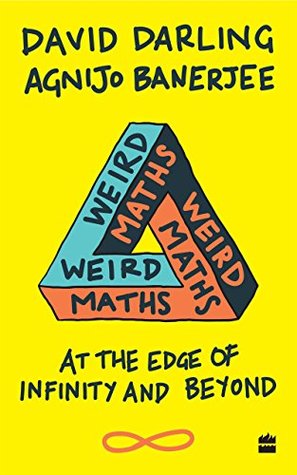More on this book
Kindle Notes & Highlights
As the German mathematician Hermann Hankel pointed out: ‘In most sciences, one generation tears down what another has built and what one has established another undoes. In mathematics alone each generation adds a new story to the old structure.’
In a way, being able to see an extra dimension is like being able to see a new colour – one outside all our previous experience.
A genuine four-dimensional observer looking at something in our world would be able to see everything inside a thing simultaneously, in addition to its three-dimensional surface. So, for example, if you had some valuable items locked up in a safe, a 4D being would see not only all sides of the safe at a single glance but everything inside it as well (and would be able to reach in and take those things if it so chose!). This isn’t because the being would have something like X-ray vision that allowed it to see through the walls of the safe, but simply because it had access to an extra dimension.
...more
If, for any given toss, we knew the exact force and angle at which the coin was launched, its rotation rate, the amount of air resistance, and so on, we could (in theory) accurately predict which side would land facing up.
This unpredictability has nothing to do with shortcomings in our measuring gear or computing power. The randomness, at this fine level of structure, is inherent in the very fabric of reality.
Measure the distance between two points on a wiggly coastline or border with an imaginary giant ruler that’s 100 kilometres long and you’ll get a smaller value than using a ruler that’s half the length. The shorter the ruler, the smaller the wiggles it can take into account and include in the final answer.
The Feigenbaum constant emerges from the process we’ve just considered, but what makes it fundamental to chaos theory is that it can be found in all similar chaotic systems. No matter what the equation, as long as it satisfies some basic conditions, it will have cycles that double in length according to the Feigenbaum constant.
But as quantum computers with more and more qubits become available, it’s only a matter of time before it becomes possible to crack, efficiently, all RSA ciphers. When this happens the current method of handling online transactions will no longer be secure and the banking industry, along with every other aspect of modern life that depends on the secure transfer of data, will be thrown into chaos.
More than 150 years have passed since Riemann announced his hypothesis to the world and the absence of a proof has become like a gaping hole at the heart of mathematics.
In the time it takes you to read this sentence, about 50 million of your cells will have died and been replaced.
Galileo, in considering such a problem, was the first to show a more enlightened attitude towards the infinite when he said: ‘Infinity should obey a different arithmetic than finite numbers.’
Infinity is not like a big finite number at all. To deal with infinity we have to jump out of the realm of finite numbers altogether and stop using them as a crutch to our understanding.
The fact that space and time appear to come in discrete amounts – the Planck length and Planck time – means that they’re not continuous like the points on a mathematical line. So, if the actual universe is infinitely large it seems that it could correspond with only the smallest kind of infinity, aleph-null. Anything bigger may always be confined to our intellects or some Platonic space unfettered by the laws of physics.
But a googolplex is sensationally larger. There isn’t enough paper on Earth, or, if it comes to that, matter in the entire observable universe, to write out the digits of a googolplex, not even if you wrote the zeros as small as protons or electrons.
It’s tempting to think that such huge numbers as Rayo’s bring us closer to the infinite. But, in fact, that isn’t the case. Infinite numbers may be used to generate finite ones, but, however high we go, there’s never a point at which the finite merges with the infinite. The truth is that seeking out ever larger finite numbers gets us no nearer to infinity than the ‘1, 2, 3’ of our early childhood.
MATHEMATICS IS THE only subject in which absolute certainty is possible.


